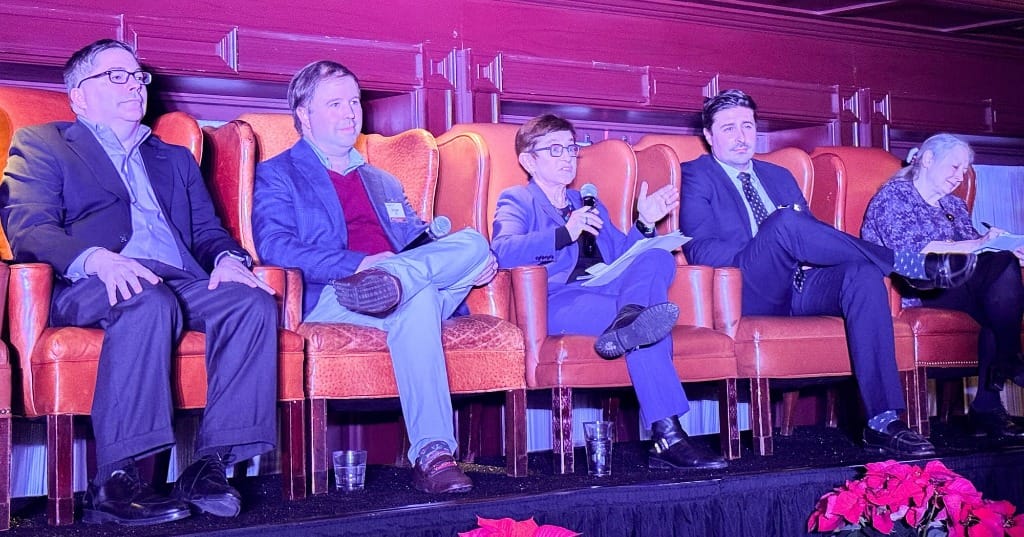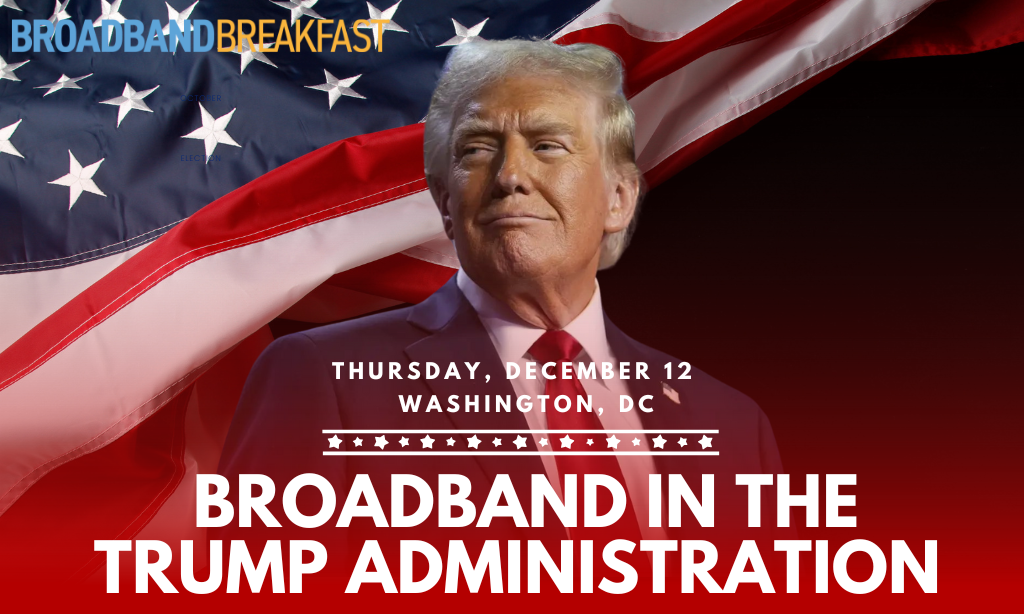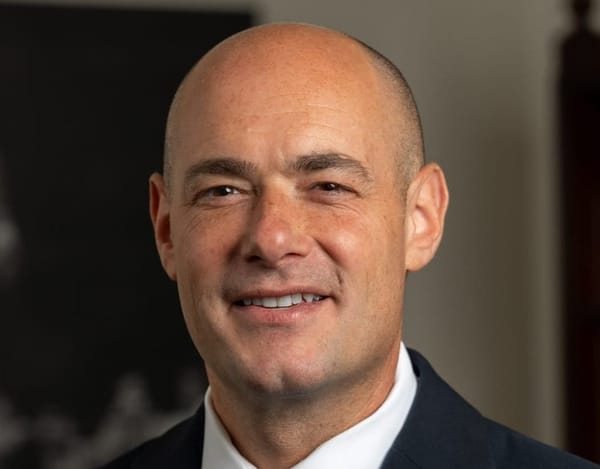FCC’s Authority on Digital Discrimination Intact: Legal Experts
Legal experts also debated FCC's authority on net neutrality and Section 230 enforcement.
Jericho Casper

WASHINGTON, Dec. 13, 2024 – The Federal Communications Commission still retains the authority to enforce rules against digital discrimination, though its framework faces legal challenges, said Gigi Sohn, senior fellow and public advocate, Benton Institute for Broadband & Society and a former FCC nominee.
Even with the Supreme Court’s recent decision in Loper Bright v. Raimondo, which stripped the FCC of its ability to broadly interpret statutes, this authority remains because it stems directly from a Congressional mandate in the Infrastructure Investment and Jobs Act, Sohn said Thursday during a Broadband Breakfast public policy event on the communications agenda of the incoming Trump administration.
Tom Johnson, former FCC General Counsel and potential FCC nominee under the incoming Trump administration, agreed, noting that Loper Bright still allows agencies to act when Congress explicitly delegates authority.
However, Johnson noted, the FCC’s decision to adopt the “disparate impact” standard, which focuses on unintentional outcomes rather than intent, is facing challenges in the courts, with the rules currently pending before the Eighth Circuit.
“There’s a statutory issue: Is this a disparate treatment statute, or is it a disparate impact statute?” Johnson said. “The court is going to decide, what is the best reading of this statute?”
He added that the FCC must use its authority within the boundaries of the statute’s text and structure.
“Where Congress has given an agency clear rulemaking authority, the question becomes whether they’ve appropriately exercised their policymaking and technical expertise,” Johnson said.
While the FCC’s authority to enforce digital discrimination rules was on firmer legal ground, Sohn said the FCC’s authority to enforce net neutrality rules was “more vulnerable.”
On Aug. 1, a panel of the U.S. Court of Appeals for the Sixth Circuit stayed the FCC net neutrality order. Oral arguments on the underlying merits of the rules were heard on Oct. 31 by the Cincinnati-based court.
“There’s nothing in the Communications Act that gives the FCC explicit authority to regulate the network management practices of ISPs,” Sohn said.
Without this foundation, Sohn argued, the FCC’s authority is more susceptible to legal challenges, particularly in courts that have become increasingly skeptical of agency overreach under doctrines like Loper Bright and the major questions doctrine.
The FCC in a Post-Chevron Landscape
The panelists’ conversation surrounded the implications of a post-Chevron world, where courts now hold greater authority in interpreting statutes, and agencies like the FCC face heightened scrutiny in justifying their regulatory actions.
Joel Thayer, president of the Digital Progress Institute, described this shift as a return to a more traditional judicial review process.
“There was a world before Chevron,” Thayer explained, “and what courts did then was listen to the agency’s justification and treat it as persuasive expert authority on the opinion, but not as the final word.”
Thayer noted that recent cases, such as the 2022 Supreme Court decision in West Virginia v. EPA significantly clarified the application of the major questions doctrine, which limits agency authority in cases of “vast economic and political significance” unless Congress has explicitly granted such authority.
“We were already on this train,” Thayer said. “The court just solidified that they will ultimately be the arbiters of statutory interpretation, but they’re more than willing to listen to expert agencies if their interpretation makes sense.”
Sohn took a pragmatic view of Chevron’s demise.
“I’m not as unhappy about the demise of Chevron as a lot of my public interest colleagues,” Sohn said, reflecting on her career as a public interest communications lawyer. “For the first 10 years of my career, I lost more Chevron cases than I want to count.” In additional to her role at Benton, Sohn is executive director of the American Association for Public Broadband.
Sohn agreed that the erosion of Chevron deference over the years had lessened its practical significance before the Supreme Court officially overturned it. “It’s been chipped away every 10 seconds,” she quipped.
She viewed the ruling as an opportunity to improve agency rulemaking. “It makes the process more uncertain, yes, but it should discipline agencies to be more precise in their factual and legal findings,” Sohn said. “Decisions will, I hope, be less political and more rooted in actual facts and law.”
Former FCC Commissioner Mike O’Rielly expressed strong support for the Supreme Court’s decision to overturn Chevron deference, describing it as a “seismic event” that rebalances decision-making power in Washington.
“As a former congressional staffer, I couldn’t be more excited to see and thank the Supreme Court for the decision,” O’Rielly said.
However, O’Rielly acknowledged the challenges this would create for agencies like the FCC. “[Agencies are] going to take more time to piece everything together, to make sure all the comments and the record are there,” he said, estimating that the rulemaking timelines could double without clear statutory authority.
Section 230 Sparks FCC Authority Debate
The panel also delved into the contentious issue of Section 230 of the Communications Decency Act, a law that provides legal protections for online platforms’ moderation practices.
With incoming FCC leader Brendan Carr outspoken about his intent to alter Section 230, panelists debated whether the FCC has the authority to interpret or enforce provisions of the statute.
Although the prevailing narrative, as of yet, suggests that the FCC lacks authority in this area, Johnson maintained that the FCC has general rulemaking authority under the Communications Act, which allows it to address Section 230-related issues.
“The Commission must interpret the Communications Act whenever it issues rules,” he said, adding that while Loper Bright removes Chevron deference, it does not strip the FCC of its ability to interpret laws within its jurisdiction.
Sohn, however, strongly opposed Johnson’s interpretation, firmly stating that the FCC has no authority to act on Section 230, and that any effort by the FCC to reduce the legal protections for platforms under Section 230 would raise significant legal challenges under the major questions doctrine. “If that ain’t a major question, I don’t know what is,” she remarked.
Sohn was confident that any rulemaking attempt under Section 230 would fail in court. “I think Brendan will try. He’ll [propose] a rulemaking, but if it goes to court — and it certainly will — the FCC will lose, and they’ll lose big,” she said.
In response to a question about Section 230, O’Rielly suggested that the FCC’s authority over cell site regulation had been misused against the drafters' intent, citing the Supreme Court's 2014 City of Arlington v. FCC decision as an example of a good income, but with a bad process.
"I was there during the negotiations, and it was clear that this was not intended to be a decision for the FCC. I can point to all the members who worked on that team, and said, ‘We don’t want the [FCC] handling this,’” O'Rielly said.
Speaking specifically about Section 230, O'Rielly said: "I make no comment on whether it should be done or where it should land. If it is done, I think it is going to be challenged in two parts: One is, does the commission have authority in general to determine some of these things, and then two, where are the lines drawn, if they are decided by the FCC."
O’Rielly’s renomination to the FCC was withdrawn by President Donald Trump in 2020 after O’Rielly publicly expressed reservations about the FCC’s authority to reinterpret Section 230.
Correction: A previous version of this story quoted Mike O'Rielly speaking about congressional intent in telecommunications law that was later at issue in City of Arlington vs. FCC. The previous version attributed that comment to being the intent of Congress regarding Section 230. The context for the quotation has been clarified. An additional statement by O'Rielly about Section 230 was added.
Additionally, Gigi Sohn's title and affiliation at the Benton Institute for Broadband and Society has been added.
 Broadband BreakfastBroadband Breakfast
Broadband BreakfastBroadband Breakfast








Member discussion